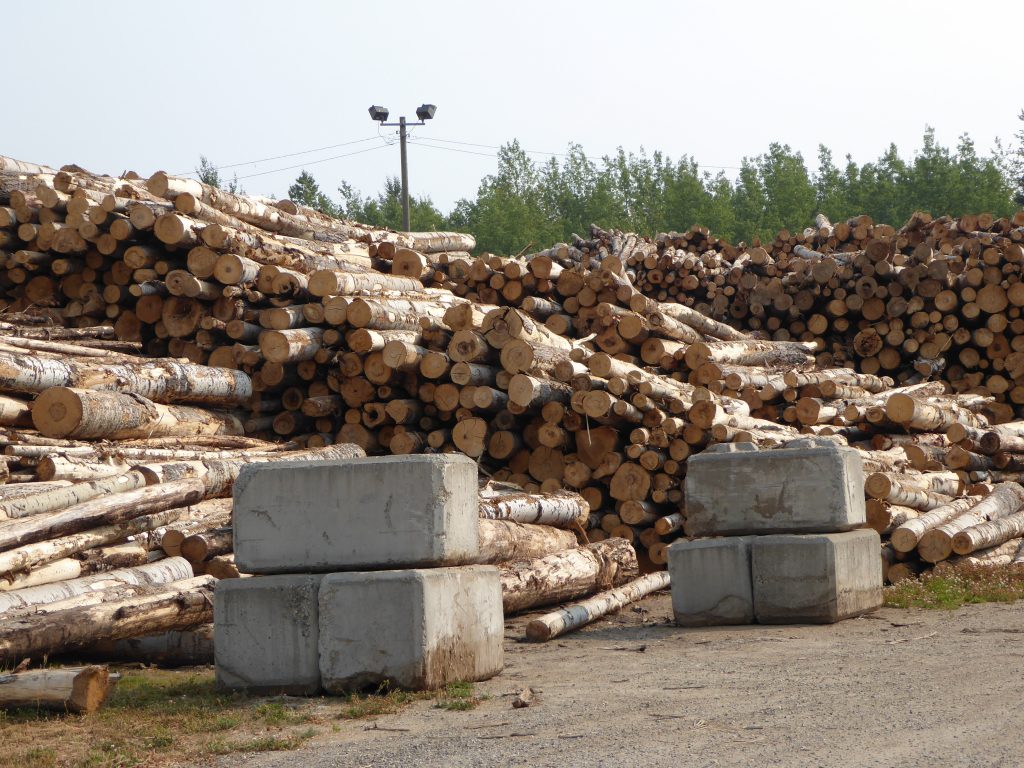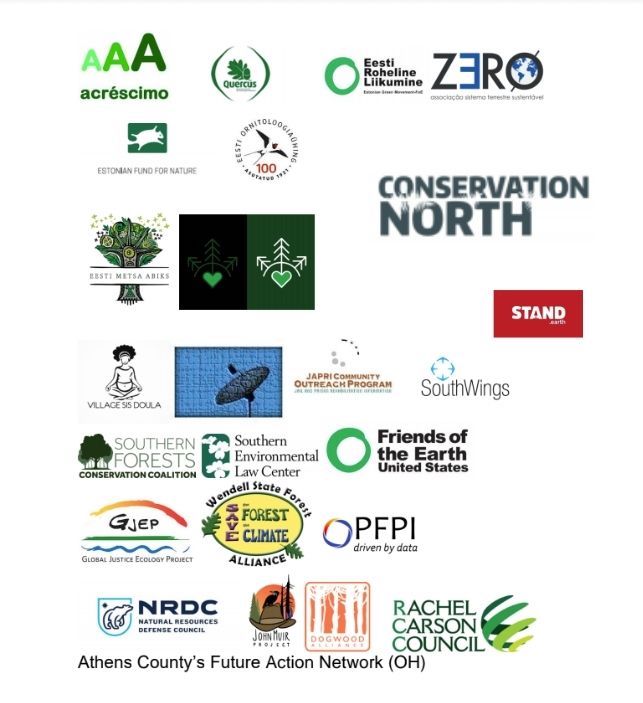Conservation and environmental justice organisations in the USA, Estonia, Canada and Portugal have written an open letter to Mr Kwarteng, Minister of State for Business, Energy and Clean Growth and Ms. Trevelyan, Minister of State for Business, Energy and Clean Growth to take urgent action to stop the UK’s subsidies for biomass electricity. With the money saved being spent on expanding genuinely low-carbon, clean renewable energy sources.

The impacts which UK biomass subsidies are having on forests in the countries supplying wood pellets for the UK are severe, as are the impacts on communities living next to plants where the wood is processed into pellets. 65% of wood pellets burned by Drax in 2020 came from the Southeastern USA, from three pellet mills owned by Drax themselves, as well as ones owned by Enviva LLC. US environmental NGOs Dogwood Alliance, NRDC (Natural Resources Defense Council) and Southern Environmental Law Center (SELC) have been publishing on-the-ground investigations into wood sourcing for Enviva pellet mills. In 2020 evidence published by Dogwood Alliance showed that wood used in Enviva pellet mills is routinely sourced from clearcuts of mature hardwood forests in a region designated as a global biodiversity hotspot. NGO investigations and investigations by reporters have demonstrated the impact to the US regions highly biodiversity natural forests. communities living close to the pellet plants are also suffering increased air pollution, wood dust exposure and noise. Black and low income communities are disproportionally affected.
In both Latvia and Estonia, logging is happening in Natura 2000 and other supposedly protected sites, too. Also in 2020, a team of European investigative journalists documented evidence of significant logging inside Haanja National Park in Estonia, where Graanul Invest (Europe’s largest pellet producer and a Drax supplier) owns dozens of forest plots.
Estonia’s forest birds are declining at a rate of around 50,000 breeding pairs a year. In Latvia, the Hazel grouse declined by 79% from 2005 to 2018, and the Black stork by 60% from 1989 to 2018.
In British Columbia, Canada, a great majority of its primary and old growth forests are logged, and very few of its remaining primary forests and sensitive forest habitats are legally protected. The growing wood pellet industry for export, including to the UK, poses a serious threat to those forests. Communities living near to the pellet plants have frequently expressed concerns about noise and air pollution, as well as threats to the Boreal forest. The forest is also home to more than 600 Indigenous communities, many of whose cultural identities are entwined with the forest. Widespread logging of boreal forests for biomass threatens many Indigenous Peoples’ cultures and livelihoods.
In Portugal pellet production now consumes almost a quarter of pine roundwood each year, and in 2020 it is estimated that by volume 56.6% more pine was harvested than was replaced by new tree growth. This represents a dramatic decline in carbon stocks, and underlines a study that found a “striking rise in harvested forest area” in Portugal in recent years. Pellet production and biomass energy generation in general is a key reason behind the increasing necessity for other industries such as sawmills to import large quantities of roundwood.
We therefore call on Mr Kwarteng, Minister of State for Business, Energy and Clean Growth and Ms. Trevelyan, Minister of State for Business, Energy and Clean Growth to take urgent action to stop the UK’s subsidies for biomass electricity. The money saved that way can and should be spent on expanding genuinely low-carbon, clean renewable energy sources.
Signed by the following organisations:

